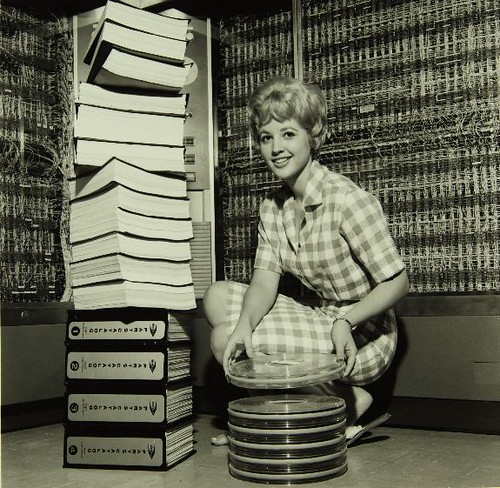
How do you build websites that are easy to use? How do you take data and turn it into useful information? When and how does technology best converge with our daily lives?
If you're asking these questions, you're interested in information science. Information science is highly relevant in our age of big data. The Bureau of Labor Statistics has predicted the top 30 fastest-growing occupations from now until 2016. These include a number of information science occupations, and fields in which a foundational understanding of data systems analysis would prove extremely useful.
It's not just about computers or programming. It's a cross-disciplinary field. Information science is about people, designing technology and developing information content. Think Facebook, Twitter, Google searches. Technically speaking, information science is the analysis, collection, classification, manipulation, storage, retrieval and dissemination of information. Information scientists study how to apply knowledge, as well as interactions between people, organizations and information systems.
Information science is not simply a branch of library science or computer science, although it can incorporate aspects of both of those. Information science applies to a broad range of subjects from communications to law to management.
Simply put, information science is where technology and people meet.
Expertise in information science is invaluable in our day and age, but basic knowledge can help as well. Businesses and society continues to grapple with the digital age's challenges and opportunities. So even if your goal is to become a healthcare professional or a teacher, you can become a more diverse contributor to your field of study by taking a single introductory information science class.
Information Science Relevance
Since information science is one of the fastest developing and exciting fields in the digital age, finding relevance in your field of study is easy. Let's start basic. If you're a teacher, you should be collecting data on your students every single day. Without data, you won't know how your students are doing. But with the right data and the right use of data, a good teacher can hone in on particular skills a student is missing, and catch that student up. That's information science! Collect, classify, and disseminate information. Apply that knowledge. Take it one step further, and allow your students to interact with their own data.
And of course, information science applies to computers too. Let's use an e-commerce site as an example. The easier the site is to use, the more money they'll make. It's not quite that simple, but an information scientist can figure out ways to ensure a stellar user experience. Collecting data about how users work within a website, when they use the site, and what products they buy is just the beginning. How that information is used can become highly beneficial with regard to advertising, product placement, and the interface.
As the U.S. elderly population rises, careers that interact and use data on senior health informatics are growing. Health informatics represents the intersection of computer science, information science and healthcare data. The senior health data derived and interpreted from this growing field is already helping healthcare providers save more lives, discover trends, and innovate treatments.
Studying Information Science
Even if computers aren't your thing, don't be afraid of a taking an I.S. course for fear of the material being too technical. Introductory or low-level classes in I.S. require no prior knowledge of programming or previous experience with data structures. They're more likely to give a broad overview of ways that the field works and where it is headed.
If your interest is piqued, or a Bachelor's degree or even advanced study is in the cards, an online resource for degree programs is provided by iSchools. iSchools is an organization founded in 2005 that is dedicated to advancing this interdisciplinary field. The 36 members of iSchools are schools, colleges, and departments that focus on advancing the study of information, people and technology. iSchools even has a career section so you can scope out their job resource possibilities within the field.
Whether you delve deeply into information science, or just skim the surface, an acquaintance with the field will empower you to recognize the potentials of data collection, organization and interpretation within your own field. This is an ability that few students or current professionals can claim.